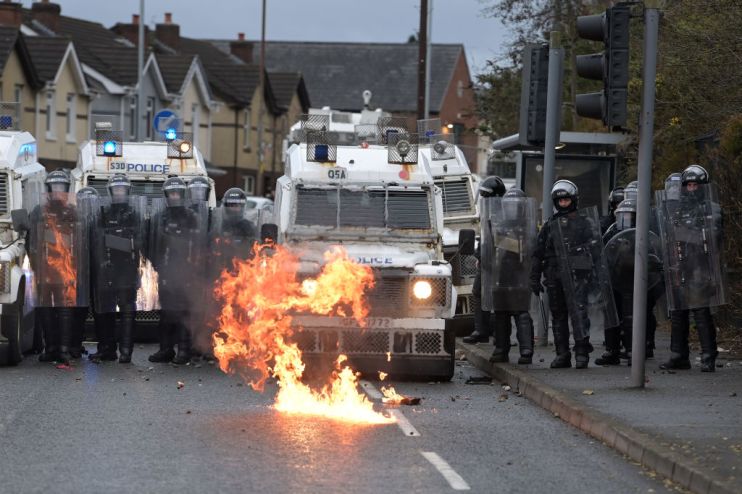UK and EU move closer to agreement on Brexit rules in Northern Ireland

The UK and EU are reportedly close to resolving a dispute over post-Brexit trade rules in Northern Ireland in a breakthrough that could help halt rising tensions in Belfast.
Brussels launched legal action against the UK earlier this year over its decision to unilaterally postpone new checks on goods going from Great Britain to Northern Ireland.
The move infuriated EU officials who claimed the move was a breach of the Brexit Withdrawal Agreement.
The Financial Times reports today that the two sides are now close to coming to an agreement on how to implement the Brexit treaty’s Northern Ireland protocol, with European Commission Vice President Maros Sefcovic and de-facto UK Brexit minister Lord David Frost potentially meeting this week.
One EU official told the Financial Times that talks were “advancing on a technical level and probably we will see a meeting rather sooner than later”.
A British official said: “The mood seems to have warmed up a bit — the tone of the discussions is quite good.”
The Prime Minister’s spokesperson said today that Frost and Sefcovic “spoke on Friday over the phone and we’re at regular contact at all levels”.
“Talks have been constructive, but there are still some significant differences that need to be resolved,” they said.
“We’re committed to working through the outstanding issues to restore confidence on the ground in Northern Ireland while respecting all dimensions of the good Friday agreement.”
It comes as Belfast has seen two weeks of violent rioting from unionist and nationalist communities.
Images of petrol bombs and fireworks being thrown at police and over Belfast’s sectarian peace walls, which separate nationalist and unionist communities, have shocked the country in scenes reminiscent of the Troubles.
The rioting first began amongst unionist communities unhappy with the new Brexit arrangements that have set up a so-called border in the Irish Sea.
Customs checks of some goods – like food, medicines and parcels – going between Northern Ireland and Great Britain will start later this year as Northern Ireland still follows EU customs union and single market rules while the rest of the UK does not.
However, former Irish President Mary McAleese told the BBC yesterday that while Brexit played a large part in the violence that there were also other factors.
“Regrettably it arises because they’re in a vacuum and there is undoubtedly a vacuum of leadership,” she said.
“There are downstream consequences of Brexit…which we realise how little consideration was given in the planning of Brexit and the referendum of the impact it would have on Northern Ireland.
“But you’re also dealing with young people, regrettably, who are still being taught to hate and who are bringing that expression of hatred on the streets. They are 13 and 14 years of age – what experience do they have of life?”
Downing Street has also denied claims from an article in the Observer that the UK government does not want to meet in Dublin for a crisis meeting on the situation.